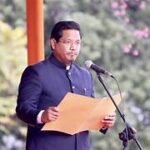The Delhi High Court has rejected a Public Interest Litigation (PIL) that sought directions for the introduction of legal studies as a subject in schools. The court ruled that the issue falls within the purview of academic policy-making authorities and that courts are not equipped to substitute for them.
The bench, led by Chief Justice Satish Chandra Sharma, acknowledged that the framing of a curriculum is the responsibility of expert bodies and not the courts. The court further noted that the new education policy of the Government of India is already addressing the country’s educational needs.
While dismissing the PIL, the court stated that the petitioner is free to submit a representation to the Central Board of Secondary Education (CBSE), the competent authority for curriculum designing, regarding the inclusion of legal studies as a subject.
The court clarified that the decision to include legal studies in the curriculum and its implementation in every school cannot be accepted since it falls within the domain of expert bodies and educational authorities. The court emphasized that the experts are the appropriate authorities to determine the list of subjects, their standards, and the quality of education to be imparted to students.
The court highlighted that the experts, particularly the CBSE, have the competence to design the curriculum, prescribe subjects, and determine the number of teachers required to teach the subjects. Consequently, the court declined to admit the PIL.
In its order, the court reiterated that it does not possess the expertise to frame a curriculum or draft a syllabus. Such matters should be left to the experts in the field. The court emphasized that it cannot interfere with the decisions made by educational experts and the government’s education policy, as they are better equipped to address these issues.
The petitioner had argued that the lack of legal education in schools violated students’ fundamental rights, depriving them of equality and equal opportunity guaranteed under the Constitution of India and the Right of Children to Free and Compulsory Education Act, 2009.
However, the court maintained that legal education was already offered as an optional subject in school education and that decisions regarding curriculum and syllabus should be made by experts. It emphasized that the court cannot substitute its views for those of the experts and the government’s education policy.
In conclusion, the Delhi High Court rejected the PIL seeking the inclusion of legal studies as a subject in schools, asserting that the matter falls within the domain of academic policy-making authorities. The court maintained that curriculum decisions should be left to experts and that it does not possess the necessary expertise to intervene in academic matters.











